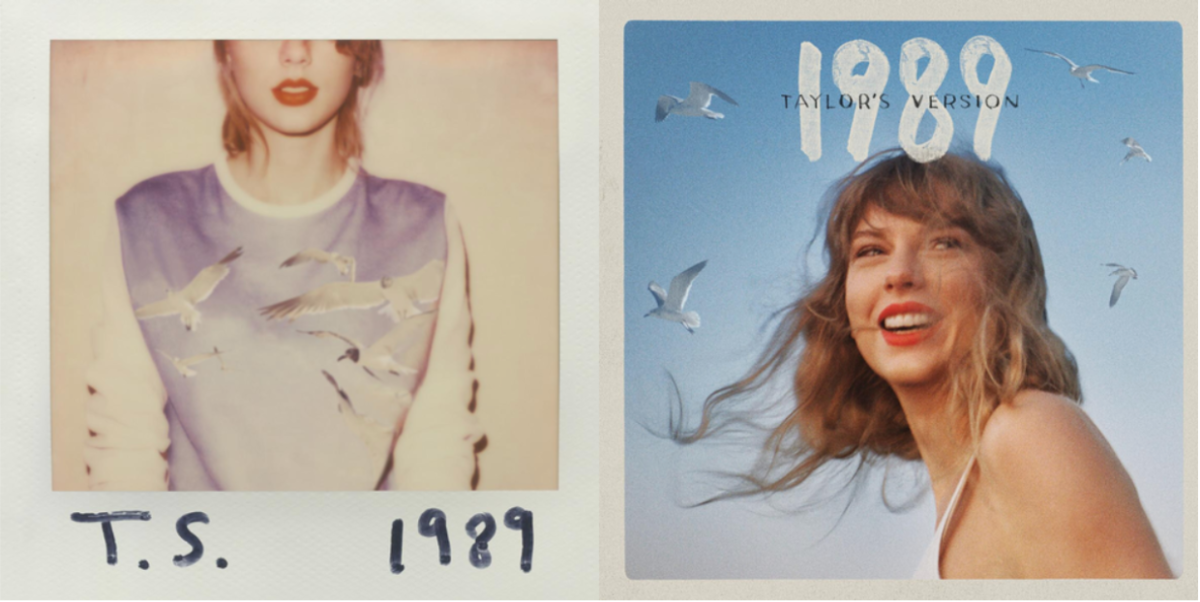Taylor Swift began re-recording her music in 2021 after a dispute with her record label about concerns with her control over her own music. She released Fearless (Taylor’s Version) and Red (Taylor’s Version) in 2021, followed by Speak Now (Taylor’s Version) and most recently, 1989 (Taylor’s Version) in 2023. On the original release of 1989, listeners gravitated towards songs such as “Style” which clearly discussed her relationship with fellow popstar Harry Styles, gaining immediate attention. The album, recorded after her move to New York, also alluded to non-romantic experiences of her twenties and how she was placed on a pedestal, her actions constantly dissected in the public eye.
Nevertheless, the album demonstrates her overall journey of self-discovery through these disheartening endeavors. With her re-recordings, Swift also releases “vault” tracks that were written alongside the released songs of the original album but not published due to their possible controversy during the album’s release. In 1989 (Taylor’s Version), she released five songs from “the vault”, namely “Suburban Legends”, “Slut”, “Now That We Don’t Talk”, “Say Don’t Go”, and “Is it Over Now?”, all of which contain individual themes that contribute to Swift’s journey to self-discovery in her twenties.
“Now That We Don’t Talk” explains her feelings after going no-contact with her now ex-boyfriend, Harry Styles. Through trying to manage going from talking 24/7 to not at all, this song describes feelings many young adults go through following a breakup. One lyric discusses the difficulties of compromising a friendship for a breakup, resulting in no-contact between the friends: “I cannot be your friend, so I pay the price of what I lost”. This accurately describes the emotion of yearning for the end of a relationship, yet also feeling sorry that you lost someone you previously enjoyed talking to non-romantically.
Noya Rosenberg, a junior at Harriton, responded to a survey we conducted about the album, sharing that “It hits really close to home”. She, like most teenagers, felt profound loss when a cherished relationship abruptly came to an end. These lyrics juxtapose Swift’s, alongside her listeners’, remembrance of the happy days with disappointment that the unpleasant times had to override their previous pure friendship.
“Say Don’t Go” outlines how Swift is still in love with an ex-boyfriend, but the feelings are not mutual between them. Current junior at Harriton, Emily Sandos, relates to this by responding to the survey with “it just makes me feel understood”. She went on to say that this song helped her during a difficult period where she misunderstood that her ex-boyfriend wanted her back, when in reality he did not.
It is critical that adolescents feel understood during difficult times; without having a way to cope, these large feelings can feel ridiculing. Swift accomplishes this goal perfectly with lyrics such as “Why’d you whisper in the dark, just to leave me in the night? Now your silence has me screamin’, screamin.” She depicts the isolation one feels after an unpleasant break up when mutual feelings become one-sided and previous happy times are unacknowledged. This is a common theme in Swift’s work: how one develops strong feelings for someone, only for the relationship to end and all ties to be cut loose. Yet, it is extremely prevalent in 1989 (Taylor’s Version) through songs such as “Say Don’t Go”.
“Is it Over Now?” highlights the pain of finding out your significant other was unloyal during a seemingly faithful relationship, that the person you once confided in and felt a deep connection with did not hold the same respect for you. In the song, Swift poses the rhetorical questions of “Was it over then? And is it all over now?” which examines how, after discovering the unloyal behavior of her boyfriend at the time, she began to rethink every encounter they had, pondering if everything was a lie all along.
In response to the survey, Megan McCloy, Harriton ‘25, shares how she connected to this song on a deep level, specifically the lyric “If she’s got blue eyes then I will surmise that you’ll probably date her.” For McCloy, it captured how many boys seem to not uphold the same standards that she, and many other teenage girls, deem as absolute.
The fact that a girl merely has “blue eyes” should not be enough to compel someone to be unfaithful, yet in the case of Swift and many others, this appears to be true. Ultimately, young adults constantly battle with circumstances that make them question their worth, and Swift connects to this insecurity as she depicts that this is a universal experience felt by her and many others.
It is no surprise why Taylor Swift is so successful, as her lyrics encapsulate a universal teenage experience. Her re-recordings and songs from the vault keep her listeners engaged and yearning for more. Despite her discouraging experiences, she uses a light-hearted tune and catchy lyrics to communicate how although people endure heartbreak and misfortune, we must unite and support one another and maintain a positive outlook when moving forward.





